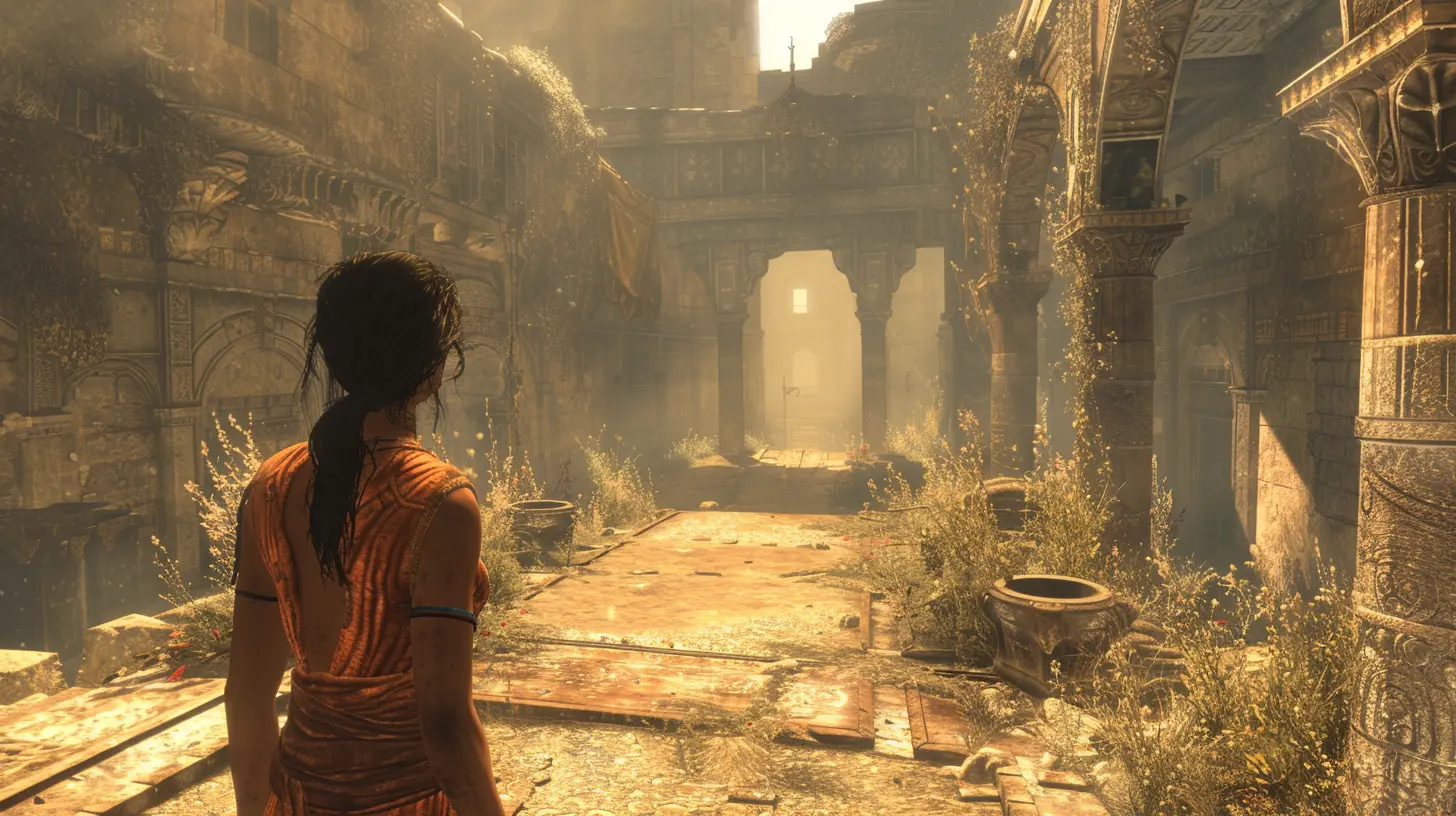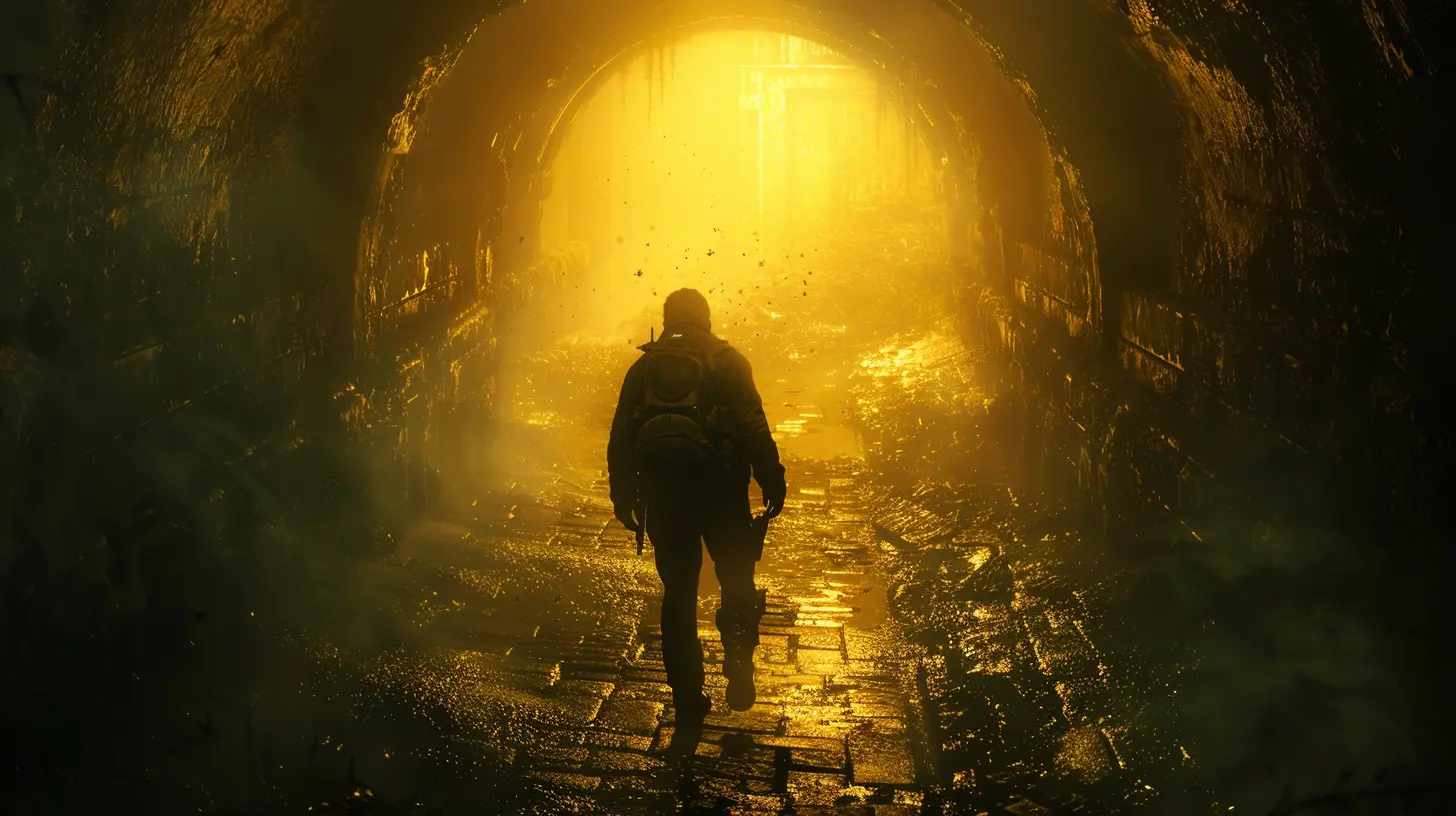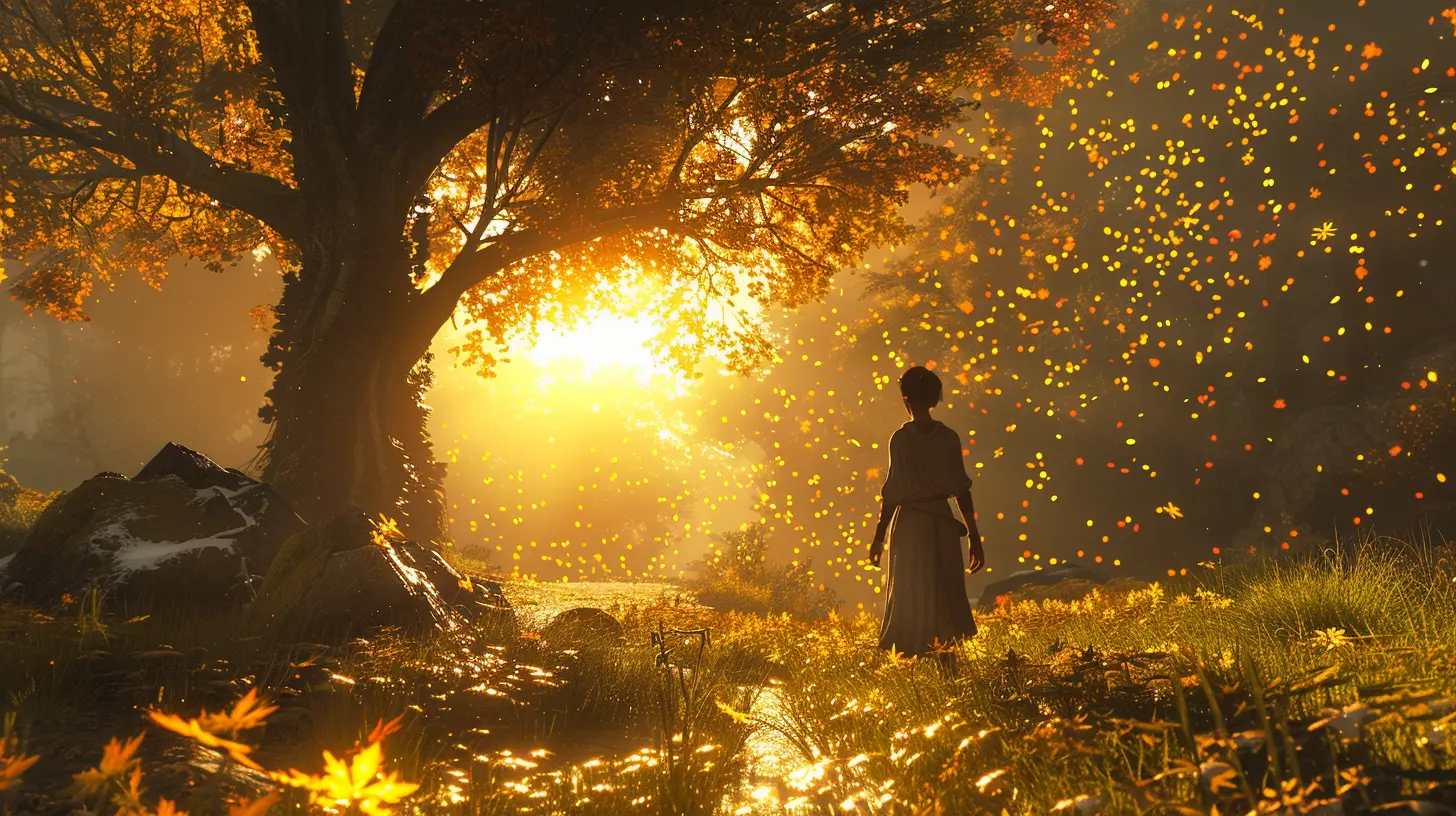First-Person Adventure: How It Feels Out of the Gate
30 April 2025
If gaming genres were a buffet, first-person adventure games would be that perfect dish you can’t stop coming back for. Whether you're spelunking into dark caves, exploring abandoned cities, or unraveling mind-bending mysteries, the first-person adventure genre gives you something unique: a front-row seat to the action. But let’s pause for a second and talk about why this genre grabs you by the collar and doesn’t let go. What's it really like stepping into the shoes of an adventurer from the get-go? Let me walk you through it.

What Is a First-Person Adventure Game?
Alright, before we dive in, let’s break it down for the uninitiated. First-person adventure games are exactly what they sound like—games where the camera is locked into your character’s head, giving you the "first-person" perspective as you explore immersive, story-driven environments. Think of it like being the main character in a blockbuster movie, but instead of watching, you're living the experience.But here’s the kicker: it’s not just about shooting enemies or solving puzzles. These games are all about creating moments where you, as the player, feel like you're truly in the world. Whether you're deciphering ancient texts, sneaking through enemy territory, or just soaking in the ambience of an alien planet, the goal is total immersion.
The Thrill of Stepping Out of the Gate
So, you’ve just loaded up a new first-person adventure game. What’s the first thing you notice? For most gamers, it’s that intoxicating sense of "you’re here, and this world is yours to discover." It’s like stepping into the halls of Hogwarts for the first time or wandering into Narnia through the wardrobe—you don’t know what’s coming, but you’re itching to find out.A Jaw-Dropping Introduction
First-person adventures usually waste no time in setting the tone. Remember how “Bioshock” dropped you smack into the middle of a plane crash only to introduce you to the eerie underwater world of Rapture moments later? Yeah, that’s the kind of first impression we’re talking about. The game world doesn’t politely ask you to take a seat and figure things out—it pulls the rug right out from under your feet while screaming, "Welcome to the ride!"Developers often use this opening sequence to hook you emotionally, leaving you with questions that you have to keep playing to answer. It's like binge-watching your favorite Netflix series, but you're in full control.
The World Feels Alive
One of the first things you notice in a solid first-person adventure game is how alive the world feels. Whether it’s swaying trees, a bustling marketplace, or whispers of ghosts in the distance, there’s an overwhelming sense that this world existed long before you arrived. Games like “Firewatch” and "The Outer Wilds" excel at this, layering in details that make you want to stop and just soak it all in.And isn’t that the beauty of it? You’re no longer confined to reality. You can walk through alien landscapes, climb snow-capped mountains, or stroll through neon-lit cyberpunk streets. It’s like being a tourist in worlds that never existed—until now.
The Connection Between You and the Protagonist
Here’s the thing: because you’re seeing the world through their eyes, you’re more emotionally tied to the protagonist. Unlike third-person games, where the character’s back is always in your view, first-person games put you in their shoes—literally. You are the adventurer.Take "The Stanley Parable," for instance. You’re not just playing as Stanley; you’re Stanley. The game’s clever narration and player-driven choices make you feel like the story is unfolding around you. That intimate connection helps you care more about the character’s goals, struggles, and outcomes.
It’s not just about shooting aliens or finding treasure—it’s about grappling with moral choices, experiencing fear, and feeling triumph as though they were your own. You’re not just observing; you’re living it. 
Immersion: The Secret Sauce
Let’s talk immersion—it’s the not-so-secret weapon that makes first-person adventures unforgettable. And it comes down to two things: perspective and detail.Perspective Changes Everything
Imagine getting a letter in a game, and instead of reading it on some third-person inventory screen, you actually pick it up, examine the handwritten words, and feel your heartbeat quicken as you uncover vital clues. That’s first-person adventure at its best—it makes even the smallest actions feel tangible.Games like “Gone Home” and "What Remains of Edith Finch" thrive on this. You’re not racing to hit objectives; you’re exploring. Every item you interact with, every sound you hear, feels personal. It’s like peeling back the layers of a narrative onion, one clue at a time.
Details Make the Difference
Great first-person adventure games pay attention to the tiny things. The way light flickers in a damp cave? That’s deliberate. The creak of a floorboard when you enter a haunted house? That’s not an accident. These details aren’t just there for decoration—they’re building the atmosphere, pulling you deeper into the world.Take "The Elder Scrolls V: Skyrim." Sure, you could run straight to the quest marker, but would you miss out on the stunning beauty of the Aurora Borealis lighting up the night sky? Absolutely. These moments are what make the journey unforgettable.
Challenges and Rewards
So, are first-person adventures all fun and games? Not exactly. They come with their own set of challenges, too. For one, they often require a lot of patience. If you’re the type who just wants constant action, you might struggle with the slower pacing of some titles.But here’s the flip side: the rewards are unparalleled. There’s nothing like the "aha!" moment from solving a tricky puzzle or the adrenaline rush of escaping a collapsing temple in the nick of time. First-person adventures challenge not just your reflexes, but your curiosity and problem-solving skills.
Games like “Portal” or “Myst” push you to think outside the box. Sure, they might leave you scratching your head for hours, but when you finally break through, it’s a feeling of pure triumph.
Why We Keep Coming Back
At the end of the day, we keep coming back to first-person adventure games for one reason: they let us escape. They give us the freedom to explore, discover, and experience worlds that are bigger and bolder than our day-to-day lives. And, honestly, who doesn’t need that escape now and then?Whether you’re a newcomer dipping your toes into the genre for the first time or a seasoned adventurer replaying a classic, first-person adventure games remind us why we fell in love with gaming in the first place. They’re not just games—they’re experiences.
Final Thoughts
So next time someone asks you, "Why do you love first-person adventure games?" tell them this: it’s the feeling of stepping into a world so immersive, it feels like it was built just for you. It’s the thrill of the unknown and the satisfaction of discovery. And most importantly, it’s the chance to live out adventures you never thought possible—all from the comfort of your couch.all images in this post were generated using AI tools
Category:
First ImpressionsAuthor:

Tayla Warner
Discussion
rate this article
5 comments
Selkie McCarthy
Great insights on first-person adventure games! I appreciate how you captured the initial thrill and immersion they offer. Looking forward to more discussions!
May 16, 2025 at 3:13 AM

Tayla Warner
Thank you! I'm glad you enjoyed the insights. I look forward to more discussions too!
Emmeline McLain
This article brilliantly captures the exhilarating essence of first-person adventure games. The immersive storytelling and fluid mechanics discussed highlight how these titles immediately engage players, creating an unforgettable experience. I'm eager to see how developers continue to innovate within this captivating genre!
May 11, 2025 at 3:11 AM

Tayla Warner
Thank you for your kind words! I'm glad you enjoyed the article and share my excitement for the future of first-person adventure games.
Bria Brooks
First-person adventures are like stepping into a dream—immersive, thrilling, and just a tad disorienting. As we plunge into new worlds, let's hope they balance nostalgia with innovation. Ready to lace up those virtual boots!
May 10, 2025 at 2:37 AM

Tayla Warner
Absolutely! It's all about finding that perfect blend of familiarity and fresh experiences. Excited to see where these journeys take us!
Haze Wolfe
Really enjoyed this perspective! Thanks!
May 9, 2025 at 3:19 AM

Tayla Warner
Thank you! I'm glad you enjoyed it!
Christopher Pruitt
Embarking on a first-person adventure is an exhilarating journey filled with discovery! Embrace every moment, challenge yourself, and let the thrill of exploration ignite your passion for gaming. The adventure awaits!
May 5, 2025 at 4:09 PM

Tayla Warner
Absolutely! Embracing the thrill of first-person adventures truly transforms gaming into an immersive experience. Let's dive in!
MORE POSTS

Behind the Scenes: How Gaming Tournaments Are Organized

When Graphics Didn’t Matter: The Power of Imagination in Retro Games

From Infinity to Creativity: The Evolution of Sandbox Games

How Skin Tones and Body Types Are Revolutionizing Character Design

How to Choose the Right Gaming Mouse for Your Playstyle